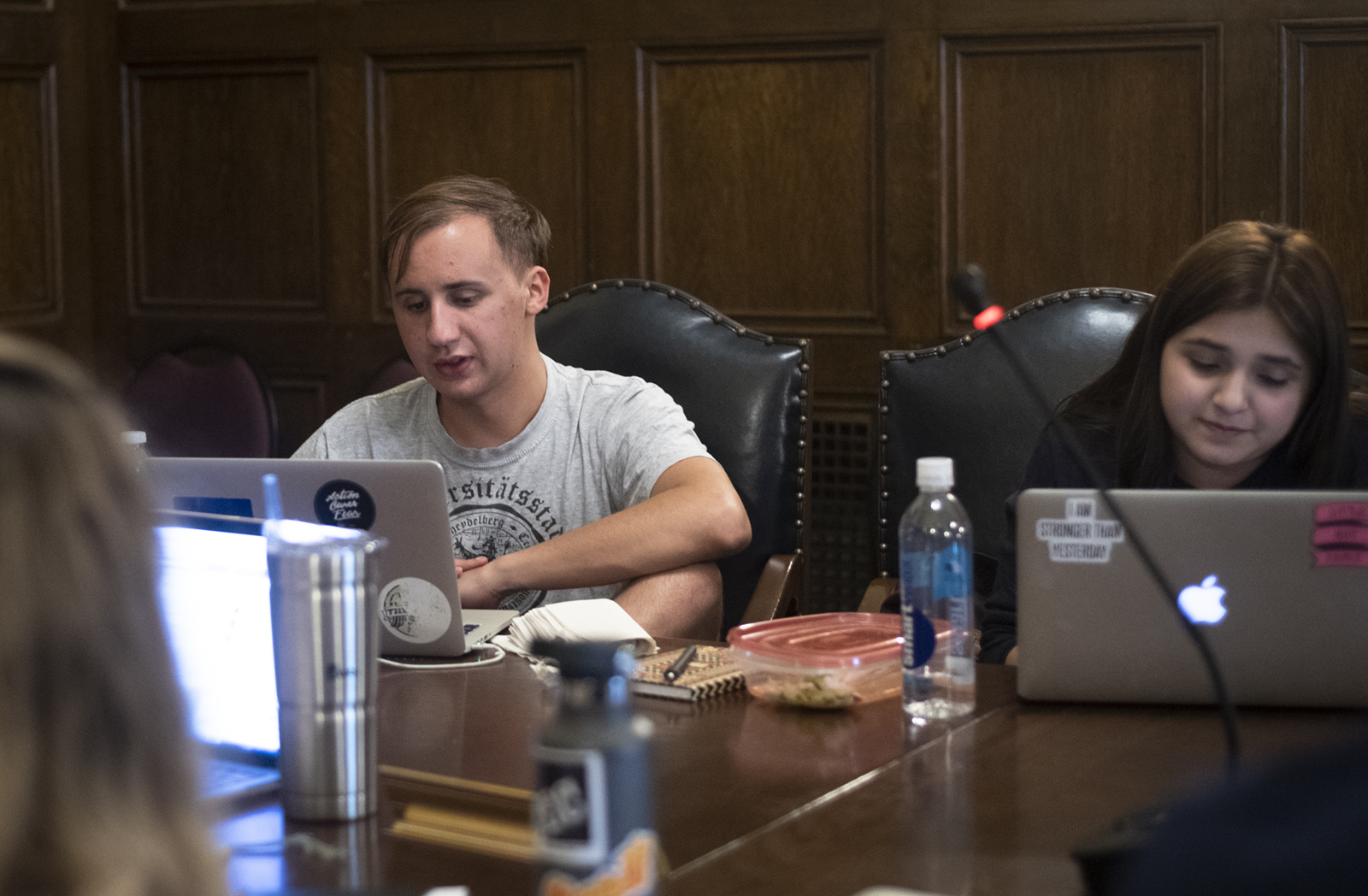USAC raises suspicion allocating student funds without student input

The Undergraduate Students Association Council must ensure its use of student fees is transparent so students don’t lose faith in what remains of UCLA’s democratic system. (Liz Ketcham/Assistant Photo editor)
By William Bleveans
Jan. 27, 2019 11:09 p.m.
This post was updated Jan. 28 at 10:00 a.m.
In the late 18th century, American revolutionaries proclaimed they would not abide taxation without representation. Today, UCLA students are protesting funding allocations without adequate representation.
The old revolutionary refrain deserves to be revived in the wake of the Undergraduate Students Association Council’s attempt to dodge student scrutiny in the allocation of its funding.
At its meeting last week, USAC used a student fee surplus to approve several purportedly time-sensitive funding allocations, including nearly $40,000 in appropriations for several of the council’s programs. Although these allocations normally would be uncontroversial, they were passed ahead of an upcoming town hall designed to involve the student body in the disbursement of funds.
USAC’s decision to jump the gun raises questions about the nature of these time-sensitive appropriations. Specifically, it is reasonable to wonder whether the council labeled these appropriations time-sensitive in order to shield them from student scrutiny.
As it turns out, these particular appropriations were not objectionable in and of themselves. As Internal Vice President Robert Watson said, many USAC offices operate on shoestring budgets, requiring the occasional allocation of surplus funding to ensure popular student services can be maintained. In particular, Watson said several of the allocations ensured his office could continue to provide clothes to underprivileged students through the Good Clothes Good People program.
But that’s not enough to let the council off the hook. Though these appropriations may have been pressing in the context of each USAC officer’s particular responsibilities, that does not give the council license to allocate tens of thousands of student dollars without student oversight. The need for oversight and transparency in USAC operations is fundamental – it has been since last spring’s electoral coercion scandal, and it continues to be in light of Election Board Chair Richard White’s refusal to abide by conflict of interest recommendations.
Simply put, the council needs to avoid even the slightest appearance of duplicity by ensuring its funding is disbursed transparently. Whether the council intended to subvert the student body’s oversight authority by approving surplus appropriations before the town hall is immaterial. What’s important is Bruins could conclude the council intended to do as much.
If students are denied a fair opportunity to scrutinize appropriations, USAC’s already poor reputation for fairness and equity would be degraded further. The mere appearance of corruption can weaken faith in democratic institutions. When institutions are perceived as unaccountable or dishonest, participation in the political process seems like an exercise in futility.
This insight is vindicated by embarrassingly low turnout in USAC elections over the past few years. Turnout has hovered slightly below 30 percent, which suggests the council has to do a better job of legitimizing the democratic process and endowing it with significance for ordinary students. Although ensuring greater student oversight of the appropriations process hardly would cure all of USAC’s ills, it certainly would be a step in the right direction.
Put another way, USAC needs to ensure students are knowledgeable about the workings of their student government. Srikar Poruri, a first-year undeclared student, said the council’s attempt to avoid student scrutiny of its allocations was indicative of its inability to represent students.
“That seems kind of not right to me – not the right way of representation,” Poruri said.
To win the confidence of Poruri and others, USAC will have to ensure that students are provided some forum to scrutinize proposed funding allocations. Such a forum can be supplied by a town hall meeting, updates via the council’s social media pages or some combination of the two. However the council members decide to proceed, they must afford students the chance to contest funding allocations before they’re approved.
That is not to say attempts to increase student scrutiny wouldn’t present a new set of problems. Specifically, Watson argued a town hall is likely to be poorly publicized and sparsely attended, resulting in the allocation of disproportionate funding to well-connected, politically involved students. However, it’s important to note that any good-faith effort to increase student oversight of the appropriations process would entail substantial outreach to the student body. At that point, it is the political apathy of the student body, not USAC’s intransigence, that would get in the way of greater scrutiny.
Clearly, USAC must take steps to increase its transparency and ensure students can hold their council members accountable. Although these reforms wouldn’t address all the council’s issues, they would go a long way toward making sure the undergraduate student government actually represents undergraduates.


